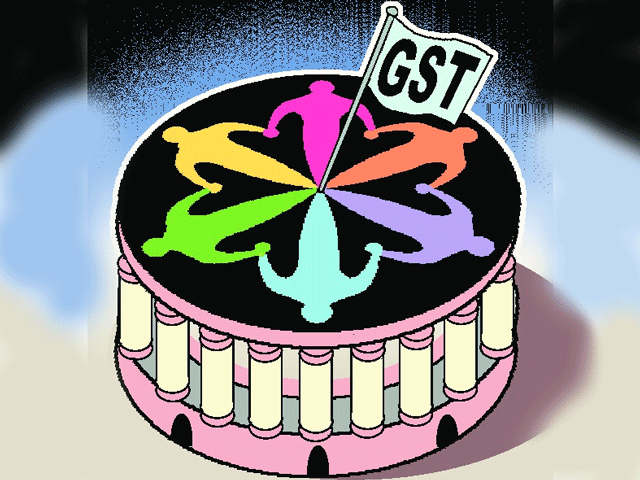
Implementation of GST (Goods and Services Tax) was a landmark decision for the Indian economy. The law aimed at reforming the complex taxation system and liberate the businesses from the previous draconian laws. The GST Act that came into effect on July 1, 2017, implemented a multi-stage destination tax on goods and services.
Following the one nation-one tax philosophy, GST replaced many indirect taxes prevailing in the pre-GST regime. VAT (Value Added Tax), sales tax, excise duty, service tax, cess, purchase tax, entry tax, additional customs duty, etc. became obsolete after the implementation of GST.
An important aspect of the GST law is that it consolidates the taxes under four categories. Businesses collect taxes under any of these heads and make the GST payment through the monthly or quarterly tax filing.
The Types Of GST
- CGST (Central Goods and Services Tax) – levied by the Central Government on intra-state sales
- SGST (State Goods and Services Tax)- levied by the State Government on intra-state sales
- IGST (Integrated Goods and Services Tax)- levied by Central Government on inter-state sales and distributed among the Centre and the State
- UTGST (Union Territory Goods and Services Tax) – levied by the Union Territories of India
Unlike the previous tax Regime, which had multiple tax rates, GST categorises goods and services into four tax slabs of 5{b3b47b4ce3613a8ae866741a21452b80454d4cde38f39b62399bbbfc1a1a9f3e}, 12{b3b47b4ce3613a8ae866741a21452b80454d4cde38f39b62399bbbfc1a1a9f3e}, 18{b3b47b4ce3613a8ae866741a21452b80454d4cde38f39b62399bbbfc1a1a9f3e}, and 28{b3b47b4ce3613a8ae866741a21452b80454d4cde38f39b62399bbbfc1a1a9f3e}. 37th GST Council added a fifth tax slab for selected products such as cut and semi-polished stones. Gold items are taxable between a 3-5{b3b47b4ce3613a8ae866741a21452b80454d4cde38f39b62399bbbfc1a1a9f3e} tax slab.
GST law also identifies certain goods and products which are entirely exempt from any taxes. Examples include milk and milk products, hulled cereal grains, rice, wheat, salts, fresh fruits and vegetables, natural honey, jaggery, judicial papers, jute and handloom, sanitary napkins, printed books and newspapers, khadi items, eggs, meat, fish, and chicken. Similarly, hotels and lodges with less than Rs 1000 tariffs, bank charges on the savings account, and accounts under the Jan Dhan scheme are exempt from GST.
Goods such as branded paneer, tea, coffee, spices, kerosene, cashew nuts, postage and revenue stamps, fertilisers, medicine, incense sticks, branded food, etc. and services such as railways, air transport, textile jobs, and small restaurants fall under the 5{b3b47b4ce3613a8ae866741a21452b80454d4cde38f39b62399bbbfc1a1a9f3e} tax slab of GST.
Business-class air tickets, state-run lotteries, non-AC hotels, frozen meat products, ayurvedic medicine, ketchup, umbrellas, sewing machine, spectacles, apparels above Rs 1000, ceramic articles, etc. attract 12{b3b47b4ce3613a8ae866741a21452b80454d4cde38f39b62399bbbfc1a1a9f3e} GST. 18{b3b47b4ce3613a8ae866741a21452b80454d4cde38f39b62399bbbfc1a1a9f3e} GST is imposed on goods like mineral water, ice creams, jams, soups, monitors, printers, optical fibres, electric transformers, tractor parts, etc. and on services like AC hotels serving liquor, courier services, broadband services and banking services.
The GST law is structured in such a way that regular use items and services fall within the first three brackets of GST. However, the highest slab of 28{b3b47b4ce3613a8ae866741a21452b80454d4cde38f39b62399bbbfc1a1a9f3e} of GST is reserved for luxury and sin goods and services. Among the total of 1300 goods and 500 services, only 19{b3b47b4ce3613a8ae866741a21452b80454d4cde38f39b62399bbbfc1a1a9f3e} come under the highest tax slab.
A comprehensive GST tax rate list of items falling under 28{b3b47b4ce3613a8ae866741a21452b80454d4cde38f39b62399bbbfc1a1a9f3e} slab is given below.
- Pan masala, cigars ad cigarettes, tobacco products, types of cement, paints, perfumes, aerated water and beverages, electric appliances like air-conditioners, washing machines and dishwashers, refrigerators and vacuum cleaners, water heaters, weighing machines, personal care items such as shaving creams, aftershave lotions, shampoos and hair dyes, sunscreen and deodorants.
- Automobiles such as petrol or diesel cars for personal use (except cars for handicapped persons), motorcycles and mopeds, accessories and parts of motorbikes, motor vehicles for transporting ten persons or more (except for bio-fuel powered vehicles), motor vehicles for the transport of goods, parts and accessories of motor vehicles.
- Luxury use items such as aircraft and yachts and high-end motorcycles
- Amusement and water parks, theme parks, race-courses, casinos, sporting events, gambling and betting services, go-karting, hotel accommodation where per day transaction value is more than Rs 7501, accommodation or food and drinks in 5-star hotels, private lotteries and movie tickets.
Every year GST council decides and moves the items from one tax slab to another depending on the economy and consumer trends. A lot of things are taken into account while determining GST on different items. A fine balance is maintained between the needs of the consumer and the industries.
